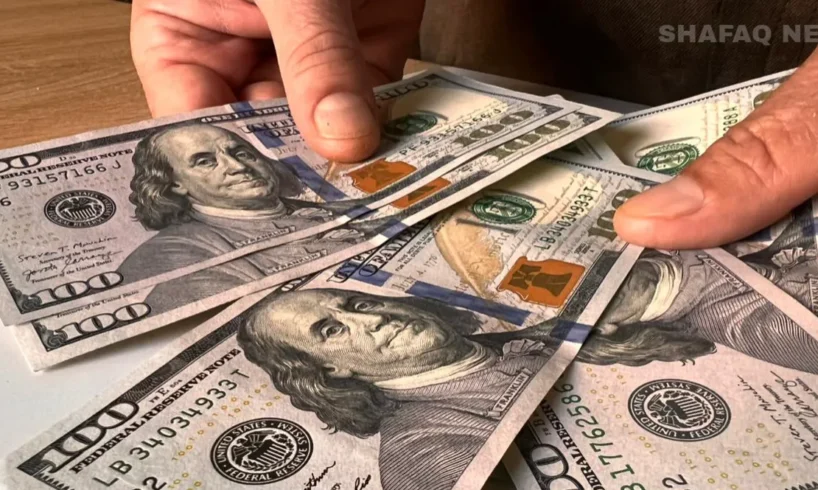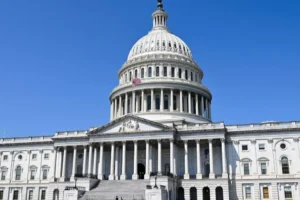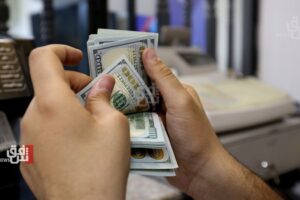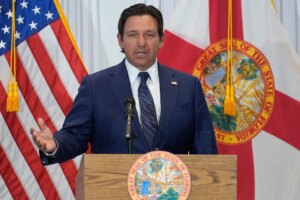
2025-10-24T06:52:54+00:00
font
Enable Reading Mode
A-
A
A+
Shafaq News
The U.S. dollar edged higher on Friday, on
course for a small weekly gain against major rivals as investors braced for
delayed inflation data that is unlikely to deter the Federal Reserve from
lowering interest rates next week.
Trade war worries were back on the agenda
after U.S. President Donald Trump said all trade talks with Canada were
terminated following what he called a fraudulent advertisement in which former
President Ronald Reagan spoke negatively about tariffs.
The Canadian dollar eased a touch to 1.4015
per U.S. dollar in Asian hours, but market reaction overall was fairly subdued.
Investor focus remains on the looming meeting between Trump and Chinese
President Xi Jinping next week.
The meeting in South Korea has spurred some
expectations of a resolution to the on-again off-again trade war between the
world’s top two economies.
“I think expectations are quite high
for the Trump-Xi meeting, with the upside risk of a significant de-escalation
following the face-to-face meeting,” said Ben Bennett, head of investment
strategy for Asia at L&G Asset Management.
“Investors are getting used to the
process of aggressive statements followed by compromise and headline deals, so
hopefully this is another example. The Canada escalation could also be part of
a deal process.”
US INFLATION DATA AT LAST
Investors are watching out for the U.S.
Consumer Price Index for September due later on Friday despite the government
shutdown entering its third week. Economists polled by Reuters expect a 0.4%
increase for the headline number and a 0.3% rise in the core figure
month-on-month.
While analysts do not expect the data to
hinder the Fed’s path to cut rates next week by 25 basis points, it could
provide cues on what the central bank might do in its December meeting.
Traders are almost fully pricing in a rate
cut next week and another one at the December meeting.
Christian Scherrmann, U.S. economist at
DWS, said it would be unwise to become complacent when looking beyond the
October meeting, citing uncertainties on tariffs, inflation and the political
flux in Washington.
These uncertainties will likely prevent
central bankers from making too many commitments, as was the case in the
September meeting, Scherrmann said. “Central bankers are likely to remain
data-dependent, but this time without the data.”
The euro was 0.11% weaker at $1.1606,
poised for a 0.4% drop for the week. Sterling was flat at $1.3322, headed for a
nearly 0.9% weekly decline.
The dollar index , which measures the U.S.
currency against six other units, was set for a 0.37% rise for the week. It was
last at 99.04.
TAKING STOCK OF NEW SANCTIONS
New U.S. sanctions on major Russian
suppliers Rosneft and Lukoil, over Russia’s war in Ukraine
sent oil prices surging higher, following British sanctions on the same two
companies last week.
That weighed on the currencies tied to oil
imports including the yen. The yen’s fate is also linked to the policies of
Japan’s new Prime Minister Sanae Takaichi, widely viewed as a fiscal and
monetary dove.
The Japanese yen weakened to a two-week low
and last fetched 152.96 per U.S. dollar. Data earlier on Friday showed Japan’s
core consumer prices stayed above the central bank’s 2% target, keeping alive
expectations of a near-term rate hike.
Takaichi is preparing an economic stimulus
package that is likely to exceed last year’s $92 billion to help households
tackle inflation, government sources familiar with the plan told Reuters on
Wednesday.
That may prove to be a hurdle for the Bank
of Japan to hike interest rates next week, with traders ascribing only a 19%
chance of an increase.
Min Joo Kang, senior economist at ING, said
the timing of the next rate hike remains uncertain, noting most board members
are cautious about the recent re-escalation of trade tensions and current U.S.
economic conditions.
“The BOJ is likely to continue its
rate-hike pause in October. We now see a December hike as our base case
scenario.”
(Reuters)
Only the headline is edited by Shafaq News Agency.





